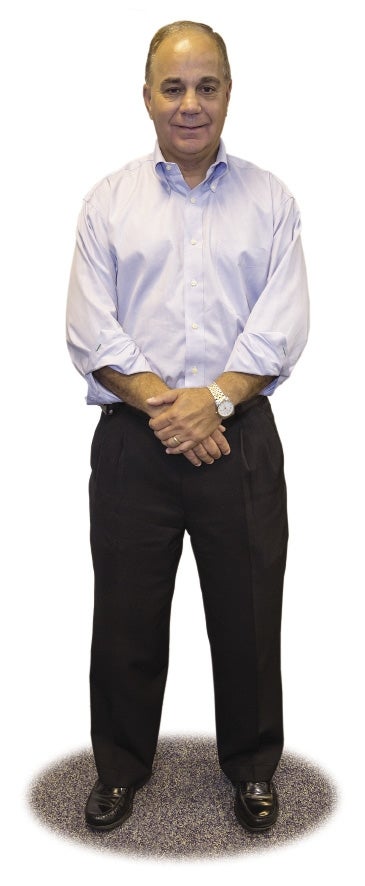
Most companies know about the importance of data storage, but they may not be aware of how it all works or their best options to back up data. ExaGrid Systems, of Westborough, is carving out its niche in this technology space, and it’s expanding its sales efforts with a goal to grow its sales force from a mere 12 in April 2014 to 100 by the end of 2016. President and CEO Bill Andrews has worked in the IT data center infrastructure space for 28 years. He’s been with ExaGrid for the last nine.
The data storage space is quite complex with tape, with cloud and, of course, disk. What’s ExaGrid’s critical differentiator?
We’re a disk-based backup system. We replace tape. The cloud really doesn’t play into our space. The cloud, for backup, is more in the small-business arena. Basically, we’re competing directly with other products that do disk-based backup behind the back of (an) application.
What are the typical pain points your customers face that you try to ease?
The first one is trying to have the backups occur at night, which is called the backup window. They start the backups at 10, 11, 12 at night and they’ve got to be done by morning. If they’re not, they’ve got to shut them off and then they have no idea what they have. They don’t have a good backup, they don’t know if it’s restorable. The first thing is to bring it in the back window. The second thing is whether they want to restore. The data (had) better be there, and quickly, because you want to get people back to work. If you don’t quickly restore that, then people lose productivity time.
The third is cost. Backup is not user-facing; it’s more like belt and suspenders. You have to have it, but cost is a driver. So as your data’s growing at 30 percent a year, it’s doubling every two and a half years, and if you don’t have a system that can keep the costs in control, you can end up spending a lot of money (on) disk-based backup.
How important is deduplication?
It’s a feature more than product; it helps you to replace tape. Tape is very low cost. In backup, what you have you will keep many weeks, months and years of retention. You keep the backups at different points in time, called versions or history. Data deduplication looks at each one of (a company’s) backups and says “Wow! From week to week, only about two percent of the data changes.” If I have 100 terabytes, only two terabytes a week (are) changing. With the advent of data deduplication, that allows you to bring in disk at about the cost of tape, and get rid of tape.
You’ve had nearly three decades focusing on data center infrastructure. What’s the most important issue businesses face in ensuring the data is properly backed up, at the lowest cost possible?
Backup is a very hard problem to solve. You’re backing up data on every server to every piece of storage on the network at least once a week. So, it’s probably one of the most challenging problems that IT people face. And the data is constantly changing, constantly being moved around, and therefore they have to put up with constantly reconfiguring to keep up with where the data is and (how) the data is being stored … it’s just not a “set-and-forget” environment.
You play guitar and write songs. Do you consider that a good complement for the skills that go with being an IT professional?
It’s funny how many IT people do play guitar. It’s shocking how many industry analysts play guitar … how many engineers and customer support people play guitar. Something says to me that music is connected to technology, whether it’s the mathematical part of the brain (or not).
(This interview was edited for length.)
Video
Bill Andrews, President and CEO, ExaGrid Systems, Westborough

